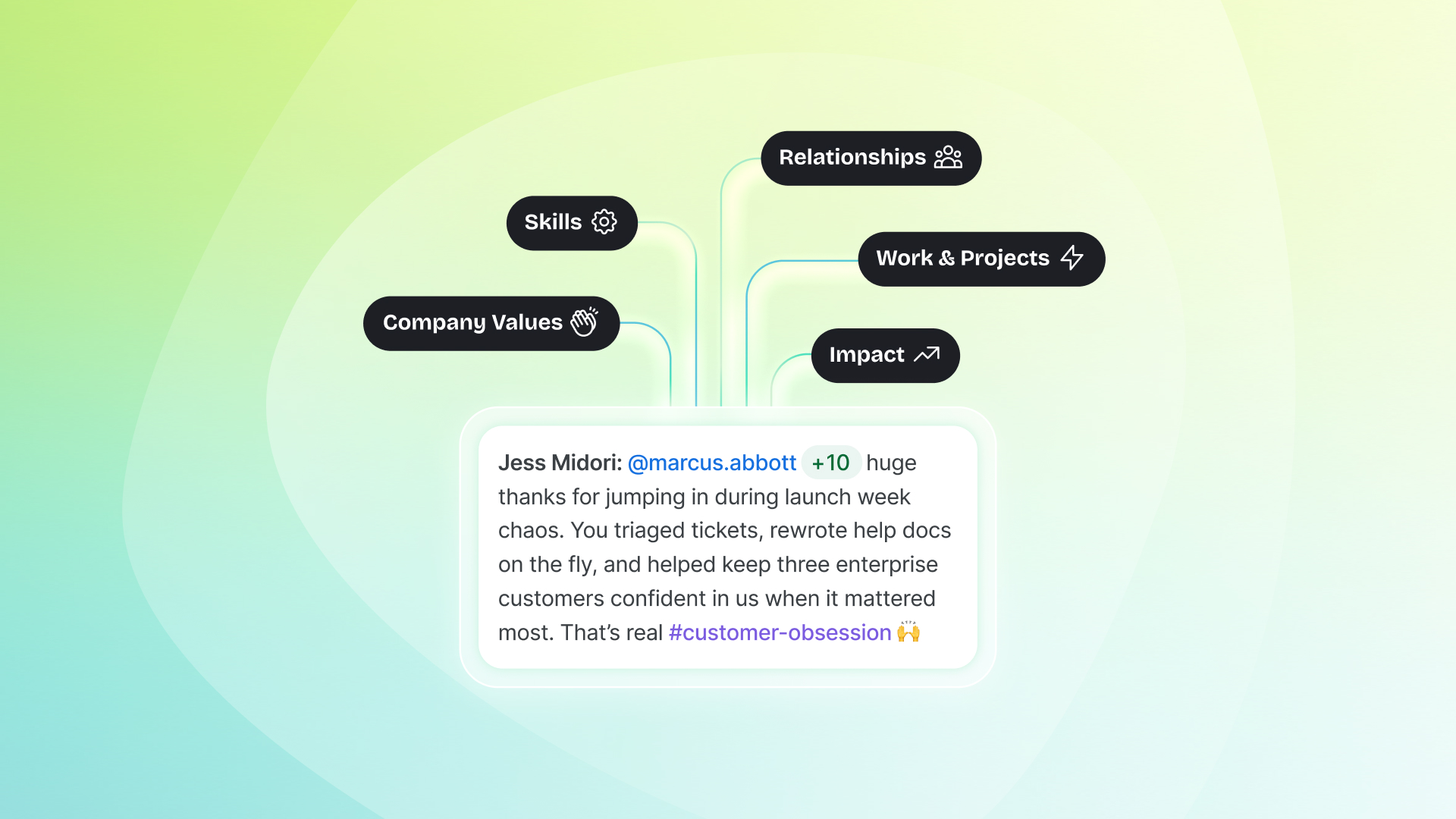10 Unexpected Characteristics of a Good Manager

What does it take to become a good manager? Although some people seem to take to it more naturally, it's not something you're born with. It's a skill, just like any other, that will improve with a focused, determined effort.
But where do you direct that focus? 🔎
The answer to this question is not obvious—and this is where many ambitious individuals have failed to live up to their potential as good managers. Ambition is key to great management, but all the personal ambition in the world won't make you a truly great manager. It takes a great deal of emotional intelligence and strength to truly inspire others.
Let's take a look at some of the less-known characteristics of a good manager, and some ways you can cultivate them in your own leadership style.
What makes up a good manager
1. Humility
Many people in leadership positions lack humility. Leading others does require a healthy reservoir of self-confidence, but humility and self-confidence aren't mutually exclusive.
Think back to your favorite books and films. Which characters are the ones you'd be inspired to follow in an uncertain situation: the braggadocious narcissist or the strong, humble leader? Truly strong individuals don't need to display their strength and accomplishments because there's nothing they need to prove.
What does this mean for your leadership style?
Make sure you're always giving credit where credit is due. There's nothing worse than working hard on the front lines, only to have the recognition for that work absorbed by the next person up the ladder. Avoid this scenario by defaulting to a practice of recognizing the contributions and achievements of your team, rather than your own. After all, it would likely be impossible for you to accomplish your goals alone, and if you're recognizing and appreciating your employees, you can be certain they'll recognize you. 😍
Never forget that as your team is working for you, you are working for them in equal measure.
2. Empowerment

Handholding—or much worse, micromanagement—is one of the most common mistakes managers make. This isn't to say that a "throw them to the wolves" approach is preferable, or even appropriate. Your onboarding program should provide all the resources needed to empower employees and bring their best work to the table.
It's important to give your team the freedom they need to shine. Whether intentional or not, excessive handholding and micromanagement express to your colleagues that you don't believe they're capable of success without your help. It's also exhausting for the micromanager.
These individuals were brought into your organization because they were determined to be the best practitioners of their profession that you had access to. Treat them that way.
If their approach to a problem (even working hours) is different than yours, stay open to the possibility that theirs might be better—or at the very least, a better fit for their work style.
3. Facilitation
The best managers are often outstanding facilitators. They focus on making sure their team has every advantage and the best possible tools at their disposal. These can be physical tools, software, or processes, but don't limit yourself or your team to those examples.
Don't let the cost (financial, time, or otherwise) of a new tool or policy blind you to its potential impact on your team's productivity or experience. Many of the ways you can facilitate great work will be less costly than you might think. It could be something as simple as an effective one-on-one meeting template, a more ergonomic desk setup, a certification course, or some quick feedback on a project.
Ask the members of your team regularly if there's anything you can do or provide that will help them.
4. Trust

Trust is a two-way street, and once it's built it will continue to grow if it's cultivated genuinely. Great managers have a mutual bond of trust and faith between them and their team. That's a hard, if not impossible, thing to fake.
If you can't trust your team, or they can't trust you, you're missing a crucial element of good management.
There's no way around this: you must have a team you trust, and be trustworthy in return.
5. Empathy
It's not common for someone to start out in a leadership position without having worked beneath a leader at least once in their life—but it is unfortunately common for people to forget where they came from. That becomes a major problem when managers subject their colleagues to the same things that they themselves used to dislike.
Although your personal job responsibilities may have undergone a dramatic change, you need to feel for your team—both their pain points and their victories—to lead them effectively.
It's infinitely easier to stay on the same wavelength if you're always listening.
6. Patience

Things aren't always going to go right. People will make mistakes, and they'll disappoint you. That's just a natural part of working with others. The key is to approach these situations with patience.
Approaching employee issues with a hot head, or a zero-tolerance approach is nearly guaranteed to incite resentment, negatively impact engagement, and in the worst cases, mutiny. This isn't to say that you should let mistakes fly through without doing anything about it, especially if they're repeats.
The key is making sure you're approaching these situations with patience and consistently giving employees the support they need to do better next time.
7. Diplomacy, a.k.a. tact
You've likely got at least some level of skill in this area to have made it into a management position, but believe it or not, you're going to need it even more now.
This isn't about manipulation—far from it. It's about knowing the likely outcome of your interactions, and always aiming for the best.
When you do need to deal with a tough situation regarding one of your colleagues, it's absolutely paramount that your actions don't make that tough situation worse.
8. Grace under pressure

Not many people enjoy under a manager who panics feverishly, or even worse, flies off the handle and turns on their team at the slightest provocation or piece of bad news. One of the most important characteristics of a good manager is strength. A strong leader will provide an anchor in stormy seas, and a solid foundation during trying times.
The manager's challenge is exuding strength without imposing it.
Transparency is vital to building trust, but that doesn't mean wearing your mortal panic on your sleeve. Keep your chin up during challenges, and give the team the solidity they need to persevere.
9. Love for learning
Learning shouldn't stop when you get to the top. If anything, it should accelerate.
It's crucial to maintain a thorough understanding of the tasks at hand, but perhaps more so to maintain a sense of curiosity, and a drive to expand that understanding. Even better when this love of learning is shared with the team. Provide them with every opportunity you can to expand their own understanding and mastery of their responsibilities.
There are many ways to do this. Encourage employees to take online courses in (and even outside) their field. Provide the means that are necessary for them to do that, whether it's a long lunch, or even supporting their tuition.
You won't be grooming them for their next job, you'll be grooming them for their next advancement in your own organization.
10. Generosity

Be generous with your team. It's really that simple.
Be generous with praise, generous with compensation (this can be, but doesn't have to be in monetary terms), and generous with your time.
Regularly—and happily—give more to your team than you expect to get in return, and you'll nearly always get more back than you could have hoped for.
The takeaway
Leading a team is a challenge, but cultivating the characteristics of a good manager will make it dramatically easier, and almost certainly more rewarding.
These ten are a great starting point, but there are more—some of which will be unique to you. Discovering and sharing them will be as rewarding to your team as it will be to you.







